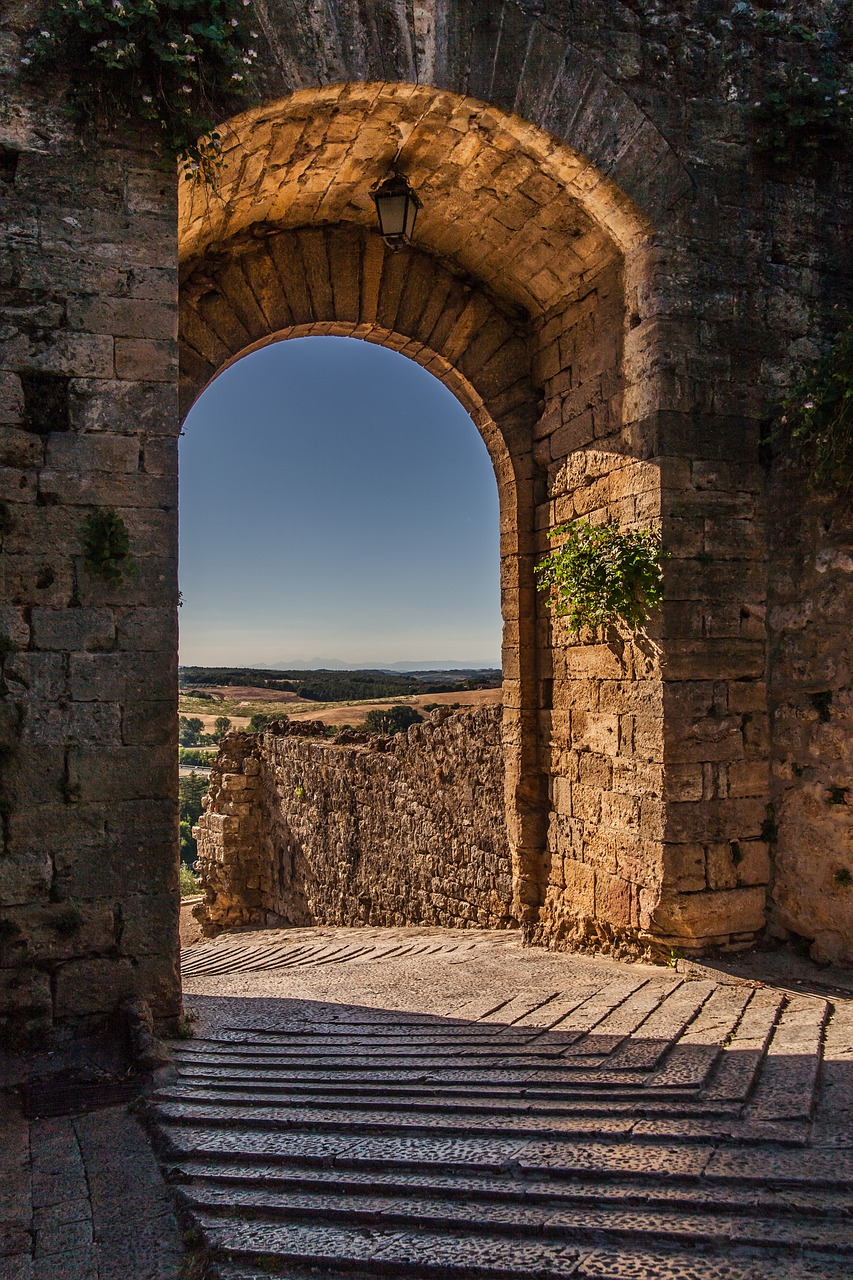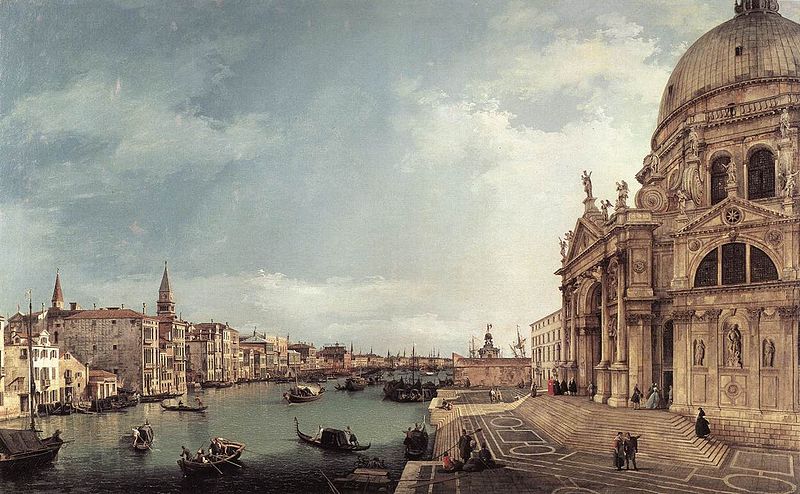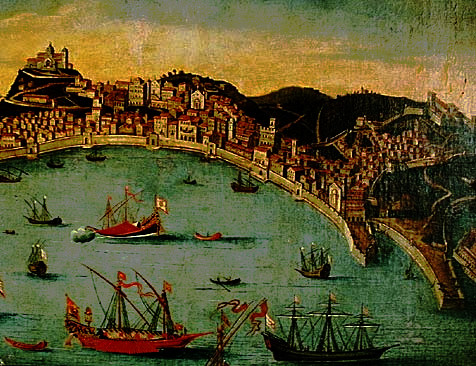Virkenhall
Virkenhall (Virgin's hall) was the first settlement to be officially founded after the conflagration. Other smaller villages and enclaves already existed in those times, but Virkenhall has been the first to get a political organization and a local statute, attracting a great number of colons. Capital of the Dragon Empire from foundation to dissolution, in the present times retains the role of capital of the Dragon Kingdom.
In the middle of the wilderness, where ruins of a lost culture used to be picked by scavengers and monsters, there shined a light to beacon the lost to a new life! Virkenhall was founded.
The Present
Demographics
In Virkenhall, the vast majority of population is composed by the Kharmian people, that have founded the city and are the original population of the region where the city was founded. A small community mixed of gnomes and halflings is present in a peripheric block of the town and occasional half-elves live mixed to the human population in lower class quarters.
In regards to social stratification and structures, Virkehall can be considered a product of its history, with most of the rich people living in the inner town and the rest of the people gradually distributed according to wealth, with poorest and less desirable people living toward the periphery of the city.
The vast majority of the population aren't actually too wealthy and they work in the farms and fields on the plains that surround the town and as fisherman in the lake that sorrounds the souther part of the city. The middle class is composed of small artisans and little business-man involved in the various production that are required in the town, from tanners to bread, from salted-fish to pottery. The upper middle-class is highly composed from army officers, clergy of the various religions and the owners of a few larger establishments in the town. The upper class is composed of members of the historical noble families that own vast part of the lands and control the politics of the kingdom.
The Government
Virkenhall, with the dominant King's Hall, is the seat of the government for the Dragon Kingdom. In the city lives, as well, the governor of the Oriental province and the major of the city, both by directed appointed by the king himself. The major can select, without interferences, a team to help him taking care of the different aspects of the community: an exchequer, a marshall, an industry overseer, a health councilor and a road's master. The seat of the major has been covered for the last seven years by Solomon Sulot, a member of the upper middle-class and brother to the high priest of Dagda.
The Defences

From north-east the capital city is protected by a massive stone rampart, surrounded by a deep moat and provided of square towers fully manned, in peace and in war times. The west side of the city lies against a rocky cliff on top of which the local manor of the Order of the Dragon controls and protects the city. Finally, the southern part overlooks the banks of the Virkenmere, and is protected by a small fleet of twelve galleys and four ballista towers. A second inner wall protects the "old city", in time of peace, this is manned only at the gates, were custom and security controls are performed. Externally the city is protected by ten forts, built in elevated positions, were the most of the garrison, between four and six thousand man strong, is trained and housed.
The industry and trade
Virkenhall hosts a number of industries, many fundamental for its own necessities while other are more oriented toward the export. The most relevant business associated with the city is the production and trade of earthware and porcelain, since the area around the town used to be covered in forests and the ground is rich in different varieties of clay. Therefore, the city hosts the whole manufacturing line from the cheapest to the most refined product. The clay pits are generally aligned along the coasts of Virkenmere, while the laboratories are more distributed. In order to keep this florent industry supplied the city has to import large quantity of wood from the north, because the agricultural and territorial expansion of the city affected massively the local woodland areas. The presence of the lake is fundamental to another important local business: tanneries and leatherworking. Those businesses collect the raw material locally from cattle and dairy farms, and sustain the needs of local armories and cobblers. Another product for which the capital of the Dragon Kingdom is famous are the Virkenhall baskets, a pastry in shape of a punnet filled with different roasted fish, meat or vegetables.
What's remained in my mind of my first visit to Virkenhall? It would be convenient to say the formidable battlements vigilantly overlooking at the plains, the shiny marbles of the King's hall or, even, the reflex of the sun-rays on Virkenmere; but what I will never forget is the crispy flavour in the air from prized McAllister's bakeries with a fresh batch of the baskets!!!
Infrastructures
All the roads inside the wall of Virkenhall are cobblestoned, the main ones are wide enough to allow two medium wagons to travel side by side. They are provided with drain to allow the fluid and manure to be removed easily, flowing in an underground net of sewers. Fresh water is provided mostly by the presence of an ancient stone aqueduct, built a few years after the foundation of the town and extended a few times in the history. In the areas not served by it wells are distributed regularly, therefore clean water is available for everyone. The lakeside is equipped with several pier sufficient to allocate the defensive fleet and the many fishing boat that complement the diet of the population with fresh fish.
Religion and culture
The capital city is a important center of reference for religious activity, in the center square is located an unusual temple dedicated to the Tuatha de Danaan in its entirity and the celebration are on a rota basis from all the clergy. Alongside this multi-divinity temple, there's the biggest temple dedicated to Dagda on Phaldorya and an important temple of Nuada. Smaller temples of the other gods and goddesses are distributed in the city. In Virkenhall is still present a decapitated statue of Balor that was erected during the Dark Tiranny, it represents a unicum in the settlements of Phaldorya and when Rhidgaer II reconquered the power choose to removed the head but not remove the statue altogether as permanent memory of those dark times. Virkenhall offers a lot on other cultural aspect too, two of the twelve schools of magic are within the boundaries of the city, the tower of Abjurators and the tower of Enchanters. If you desire to study architecture or engineering the Academia Constructorum can provide with the most advanced knowledge available on the continent, it is hosted in one of the wings of the royal quarters. In the center of the city the astouding Royal theatre is the place to listen to music or attend to beautiful operas, more affordable concert hall and smaller theatres are present inside some of the taverns and inns of the town.
Factions and guilds
The most influential faction in the capital city is represented by the Order of the Dragon, which is strongly connected with the clergy of Nuada. The Falconer's rest tavern hosts the important Royal Falconry Society providing the nobles with trained birds of prey for their hunts, it is voiced that many of the members of the society are scouts and often speak in code to exchange news of the world. Being the leading industry of the settlement the Potter's Guild is the most influential professional lodge, they can lobby together to influence political decisions in their interest. In the slums a criminal sindicate operates to control the black market and the activities of thieves and burglars, freelancers are expected to find a strong opposition. Be Chuille's Inquisition is present and active in Virkenhall, although the interposition of other organizations, reduces their range of action.
Natural resources
The plain surrounding Virkenhall has gone through a significant anthropization process through the centuries. While untamed forest once covered most of the surface of the district, now field and meadows with intersperse orchards and olive groves have taken their place. The wood of the forests has been used for a few centuries to contribute in the expansion of a rapidly developing city and to support the needs of the local businesses. The sacrifice of the woodland was an unavoidable passage for the creation of Virkenhall as we know it today. The main crop produced in the plain are cereals and forage, less commonly legumes and other vegetables are grown. Following the agricultural expansion new breed of cattle have been gradually selected: the Kharmian, a dairy with piebald dark ochre mantle on a black background, and the Blue Prince, a cattle with a pale white mantle that let shine through the colour of the veins giving it a light blue hue. Those two breed are the most common livestock in the area, with occasional pig, goat and sheep herd alongside.
Taxes and laws
Virkenhall follows a fairly simple fiscal system, based on the estimated production, a value equal to one tenth in products or coins has to be pain to the local government that provides protection and services. Most of the cultivate land is property of a some nobles family that rents it in lots to families of farmers that will be allowed to keep half of the production, once the governative taxes have been collected, and will have free access to flour and oil mills according to their crops. It is expected that a family that enters in a new property will live there and cultivate the land for not less than ninety years, even if longer period can be agreed, the landlord has no right to evict the tenants but can reclaim the cost if they abandon their lot before the expiry of the terms, although it is not unheard of people disappearing without leaving traces. The use of weapons inside the walls is strictly prohibited and, if someone decides to carry some weapons those have to be sealed at the gates, alternatively adventurers and travellers can deposit their weapons in one of the forts and collect them again when ready to leave the town. All the other laws of the Dragon Kingdom are valid and take priority in case of conflict.





This is such a terrific article! I love how it looks design-wise and it's so visual, I can see quite a bit of the settlement!
You are doing a great job! Keep creating; I believe in you!
Luridity: Where love is love and life is lived. Contains NSFW content.
Now with serialized fiction on Ream!!
Woah! That's such an unbelievable comment, thank you very much!!!!